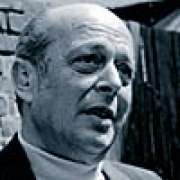|
Biografie Ivan V. Laliæ
Ivan V. Laliæ (born June 8, 1931 - died July 28, 1996) was a Serbian poet with a reputation as one of the finest European poets of his time.
Laliæ was born into a cultured family in Belgrade; his father, Vlajko, was a journalist, and his grandfather Isidor Bajiæ was a celebrated composer. As a child he experienced the trauma of seeing many of his school-friends perish in an air-raid. Laliæ said that "my childhood and boyhood in the war marked everything I ever wrote as a poem or poetry".
Laliæ lived in both Zagreb and Belgrade, and spent the summers with his family in the Istrian town of Rovinj. He was survived by his Croatian wife, Branka, and his younger son.
Laliæ was awarded with the most prestigious literary prizes in Yugoslavia. He was admired abroad and books of his poems have been translated into six languages (English, French, Italian, Polish, Hungarian and Macedonian). Individual poems have appeared in more than 20 languages.
In her obituary of him, Celia Hawkesworth spoke of "the central place in his work of memory: fragile in the face of the collapse of civilisations, but all we have. Memory allows the poet to recreate brief instants of personal joy as well as to conjure up a sense of the distant past. It allows each of us, as individuals condemned to solitude, to connect with a shared inheritance and feel, for a moment, part of a larger whole."
|





